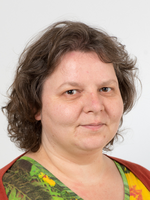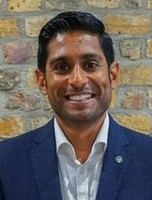Workshop: Corporations, Labor and Human Rights: Historical and Legal Perspectives
B18.003, Brig Campus
New economic theories depart from the economic growth model that consists in stimulating consumption and production in order to create jobs. “Degrowth” and more recently “Post-Growth” are used as new concepts for movements that put values, such as the environment, equality or care at the top of the economic agenda.

But if creating jobs and improving material conditions are not the main purpose of the economy anymore, what does this mean for workers and their labour rights? How can the law ensure a smooth transition towards a greener and fairer economy for workers?
In this webinar, Professor Nicolas Bueno (UniDistance Suisse) will introduce the notion of "Post-Growth" from the books of Tim Jackson (Post Growth, 2021) and Kate Raworth (Doughnut Economics, 2018) and discuss how work could look like in a post-growth world. Professor Beryl ter Haar (University of Warsaw) will discuss how labour law could support the transition towards a greener and fairer economy and ensure workers’ protection. Ruwan Subasinghe (International Transport Workers' Federation) will explain how workers’ movements anticipate and react to a transition towards a greener and fairer economy.

Prof. Dr. Nicolas Bueno is assistant professor at the Faculty of law of UniDistance Suisse. He completed his doctorate in international law at the University of Lausanne and conducted postdoctoral research at the University of Louvain (2016), the London School of Economics (2017) and the University of Zurich (2018-2021). In his current SNSF-Ambizione research project, “Labour Rights Beyond Markets”, he shows how work and labour rights evolved with economic ideology and proposes a post-market approach to work. As a practitioner, he litigated in business and human rights at the European Center for Constitutional and Human Rights (2014-2015).

Prof. Dr. Beryl ter Haar is a Professor at the University of Warsaw and Head of the Centre for International and European Labour Law Studies (CIELLS). She is also Endowed Professor for European and Comparative Labour Law at the University of Groningen, Netherlands. She holds a PhD degree from Leiden University. Beryl ter Haar has coordinated (advanced) master programmes on international and European Labour Law (Amsterdam and Leiden). Her research focuses on new developments in international and European labour law, including forms of new governance and transnational private regulation as well as on the changing world of work due to digitalization, climate change and growing resource shortages.

Ruwan Subasinghe is the Legal Director of the International Transport Workers’ Federation (ITF). He specialises in labour, human rights and international law. Ruwan represents the ITF at external bodies including the International Labour Organization (ILO) and the Organization for Economic Co-operation and Development (OECD). He is frequently called up as an expert on international labour standards and, among other things, guest lectures at the International Training Centre of the ITC. Prior to joining the ITF, Ruwan trained and qualified at an international law firm based in London. He holds a Bachelor of Law's degree from the University of Durham and a Master's degree in Industrial Relations from the London School of Economics and Political Science.
Are you interested in labour law, international law and their implications for Swiss law? Find out about our Bachelor's degree in law.
Would you like to deepen your knowledge of private, public and criminal law? Continue your studies while working with our Master of Law.